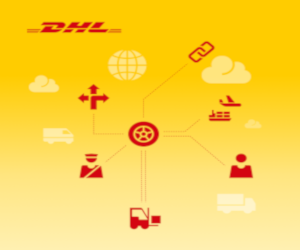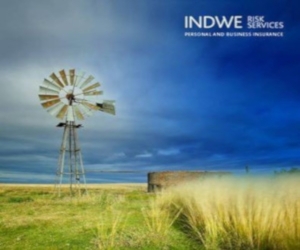Gartner's annual global Supply Chain Top 25 identifies today's supply chain leaders and highlights their best practices.
Amid severe and ongoing disruption, organizations that can juggle conflicting priorities to operate agile, robust, transparent, and ethical supply chains are impressive.
Gartner's Supply Chain Top 25 for 2021 celebrates companies whose supply chain strategies have shown them to be purpose-driven, disruptive, and early adopters of innovative technologies.
To recognize the most sustained examples of supply chain excellence, Gartner lists Apple, Amazon, McDonald's, P&G, and Unilever asSupply Chain Masters—an accolade earned as a result of having attained top-five composite scores in the Gartner Supply Chain Top 25 for at least seven out of the past 10 years.
These five aside, here are the top 10 supply chain companies of 2021.
1. Cisco Systems
For the second year running, telecommunications technology conglomerate Cisco Systems tops Gartner's Supply Chain Top 25.
Thanks to its commitment to creating a dynamic, distributed supply chain, focusing on dual sourcing to build resiliency, and fostering meaningful relationships with its suppliers, Cisco has continued to thrive despite the disruptions of the past 18 months.
The company has also made a concerted effort to integrate sustainability initiatives with its supply chain business. Cisco has pledged to reduce its greenhouse gas (GHG) emissions by 30%, while 80% of its component, manufacturing, and logistics suppliers will have a GHG emissions reduction target.
2. Colgate-Palmolive
Colgate-Palmolive, which provides household and consumer products to millions of households around the world, has demonstrated agility, resilience, and commitment to supply chain sustainability.
Early in 2021, Colgate-Palmolive was featured on Fast Company's list of the World's Most Innovative Companies. This was thanks to its development of a first-of-its-kind recyclable plastic tube, a technology it has also shared with third parties.
Colgate-Palmolive has consistently invested in new digital capabilities, including factory automation and advanced network modeling. For example, in a bid to connect manufacturing operations to its supply chain and boost supply chain reliability, the company is moving towarda predictive maintenance model. Wireless sensors and artificial intelligence-powered data analytics will enable Colgate-Palmolive to monitor equipment health 24/7 and optimize its performance.
3. Johnson & Johnson
Johnson & Johnson has proven itself to be an MVP since the COVID outbreak. In March 2020, the Johnson & Johnson Family of Companies and the Johnson & Johnson Foundation pledged $50 millionto support frontline healthcare workers with meals, personal protective equipment, training, and mental health support.
A partnership with not-for-profit company Prisma Health earned Johnson & Johnson Gartner's Power of the Profession Award for Customer or Patient Innovation of the Year. The pair developed a3D-printable device, which allowed for a single ventilator to be fitted for use by two patients.
Part of the company's Healthy Lives Missionincludes a commitment to using 100% recyclable, reusable, or compostable plastic, recycled paper, and pulp-based packaging by 2025.
4. Schneider Electric
Schneider Electric, a global specialist in energy management and automation, operates a diverse supply chain in more than 100 countries.
Driving sustainability throughout the supply chain, which includes embracing an approach known as "embedded sustainability," is a top priority for Schneider Electric to ensure that integrating environmental, health, and social value with core business activities does not impact price or quality.
Currently, more than 73% of the company's investmentsare being directed toward developing new and even more sustainable solutions.
In addition, Schneider Electric's EcoStruxure platform is helping the company build a coalition of partners committed to driving innovation in the energy management industry.
5. Nestlé
For the second year running, Nestlé scored a perfect ESG score in the Gartner Supply Chain Top 25. (An ESG rating measures a company's exposure to long-term environmental, social, and governance risks.)
Nestlé's efforts include developing simplified packaging and biodegradable and compostable materials and upping its use of recycled content. Nestlé also launched an interactive video platform to raise consumer awareness about the complex sustainability issues associated with the palm oil supply chain.
The company is also expanding its e-commerce business and developing new direct-to-consumer capabilities across its entire supply chain.
6. Intel
Amid a worldwide chip shortage, Intel announced in March 2021 that it would be spending $20 billion to build two new chip plants in Arizona. This signaled the company's continued focus on manufacturing and demonstrated its ability to deliver innovative supply chain solutions under difficult circumstances.
Intel's RISE (responsible, inclusive, sustainable, enabling) strategy includes the goal of developing "the most sustainable and energy-efficient PC in the world, eliminating carbon, water and waste in its design and use."
In its 2020-21 Corporate Responsibility Report, Intel notes it has increased its use of renewable energy from 71% to 81%, conserving 7.1 billion gallons of water in the process.
To drive sustainability throughout its supply chain, Intel requires its 9,000+ tier 1 suppliers to comply with the Intel Code of Conduct and the Responsible Business Alliance (RBA) Code of Conduct, and to develop their own corporate responsibility strategies, policies and processes.
7. PepsiCo
One of PepsiCo's top priorities is investing in digital toolsand advanced technologies tocreate a more efficient, streamlined supply chain. It focuses on data integration to better meet consumer demands and sophisticated data analytics to drive those efficiencies.
Following the COVID outbreak, PepsiCo showcased its agile supply chain by quickly launching two direct-to-consumer offerings—Pantryshop.comandSnacks.com—to enable customers to customize a range of its products.
The company is also committed to driving sustainability through its supply chain. For example, PepsiCo recently revealed plans to become net water positive—replenish more water than it uses—by 2030. If successful, the company will be among the most water-efficient food or beverage manufacturers operating in high-risk watersheds.
8. Walmart
Walmart's supply chain is often touted asone of the most effective in the world. In the past two years alone, the retailer hasinvested $11 billionin e-commerce, supply chain, and technology.
The company launched Walmart+, which rivals Amazon Prime, implemented a range of new fulfillment options—such as curbside pickups—and is upgrading its warehouse management system to drive efficiency through its supply chain.
The company has also committed to achieving zero emissions by 2040.
9. L'Oréal
L'Oréal has made it into the top 10 of the Gartner Supply Chain Top 25 for the first time thanks to its agile, customer-centric, and ethical supply chain practices.
"Digital Beauty" is a key focusof the company's supply chain strategy. This includes a shift towards technology-augmented logistics and increased use of data to accommodate the rise of e-commerce.
L'Oréal also has a fantastic track record for corporate social responsibility (CSR). Not only is it the only company to rate Triple-A in the client data protection (CDP) ratings for four years in a row, but it was also featured in Ethisphere Institute's 2021 list of the World's Most Ethical Companies. In addition, the L'Oréal for the Future program includes the goal of reducing the greenhouse gas emissions linked to the transport of its products by 50% between 2016 and 2030.
10. Alibaba
Alibaba features in the Gartner Supply Chain Top 25 top 10 for the second year running, having significantly expanded its supply chain offerings to deliver manufacturing efficiencies.
Example: Alibaba.com Freight was launched by the company in 2020. This supply chain-as-a-service initiative allows small and mid-sized companies to compare, book, manage, and track bulk ocean and air freight in real time.
The Chinese retailer has also collaborated with Unilever on The Waste Free World Initiative to accelerate the process of returning high-grade plastic back into a closed-loop recycling system within China.
SOURCES: Thomas Insights, Gartner Inc.



